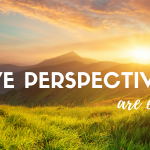Vacationing Over Vacating
There are some who believe that taking time off is a sign of weakness…to those I say, “To be balanced in life is the sign of ultimate strength.” The EmPOWERment Couple is back again for Season 3 after a much needed break. As with the bulk majority of our fellow planet Earthers, the sh!t was getting real for us. When presented with the choice of vacating our post of serving love, or taking a vacation allowing us to cultivate more love to serve, we chose the latter. And so, as a show of love from us to you, we want you to know that you don’t have to vacate when all you need is a vacation.
During this episode’s bit of merriment we will discover:
- Just why we needed to take some time off.
- How you can take time off regularly without falling behind on goals.
- Our 10 scientific benefits behind taking time off.
- The many cultural differences around creating a work/life balance.
You don’t need a timeshare, a hidden cabin in the woods, or an all-inclusive tropical getaway (however, that does sound delicious) in order to serve yourself love. If all you have is an hour or two, find a spot where you can be you. So, if you are going the distance, if you are going for speed, The EmPOWERment Couple is calling you in for a much needed pitstop. Take time to love you, so that there is more of you to love.
Show Blog:
We took some time off as you may have noticed. Now it’s time to share what we found during our time of relaxation, regenerating, and pausing our podcasting to bring you a fresh perspective. We came back to tell you, we support mandatory vacations for everyone. That’s the only mandate we are going to support here on the EmPOWERment Couple podcast.
Snorkle masks will be required and will be heavily enforced.
Since we last were with you we have been to California twice for weddings and some rest near our favorite body of water, mama ocean. The vacation was necessary because the burnout was REAL.. running multiple businesses and producing a podcast on our own in a way that wasn’t sustainable was REAL.
So, rather than vacate the podcasting life entirely we chose to take a break to reconfigure how we show up for you weekly and assess what we were doing well and what we needed to work on as business partners.
Question of the week:
Do you share a business or work with your spouse?
As a couple, we always have to manage work life balance. Mike tends to take time off easier than I do when it comes to working on business stuff. Whereas I’m more prone to get the business done even if the dishes are taking over the countertops. He cannot function in a dirty house. He’s also better at prioritizing time off and I tend to burn myself out.
As we launch season 3 here is what you can expect: we are still showing up for you every Thursday. We are still serving love, education, entertainment, and empowerment. On top of all this goodness, we plan on sneaking in a few special guests, so continue to tune in.
We are also going to introduce a new series of content called empowerment choices that are just like this one, a healthy choice over a negative choice. Today we are encouraging everyone to choose to vacation over vacating. Here is what we mean when we say, vacating: “leave, quit, move out of, give up, or withdraw from”
Quitting something you absolutely love because it’s too hard, is not a good solution for anyone. Instead, we are going to empower you to take some time off regularly, and we are going to back it up with scientific benefits.
Today we’re going to cover:
- We’ll share about our time off
- How can you take time off regularly and not fall behind on goals
- 10 scientific benefits behind time off
- Working schedules here in the US
- Cultural differences around work life balance.
Our Time Off
Here is what we discovered while taking time off. Mike, do you want to start?
Mike: When we started the Podcast, we were in the beginning phases of the pandemic. With that said, we started amongst a massive change in how we all lived our lives. As the weeks stretched out into months, and years, I got to a point where I needed to take some time to digest everything. I felt emotionally, spiritually, and physically full, like I had just walked away from an all-you-can-eat buffet during a high school reunion. Although I skipped both high school reunions, and I stayed away from the buffets, I was unable to stay away from the massive upheaval that permeated every part of my earthly experience. Whenever I feel like I had too much of anything, food, negativity, conflicting narratives, I need to take time to digest, discharge the negativity, and seek the truth that is found only in the heart. Vacating, or Quitting the podcast wasn’t an option, yet continuing to operate under the conditions wasn’t an option either. And when the ego kicked in, telling me that I need to do one, or another, my heart finally interrupted and presented a third option. This option was as clear to me, as building a cocoon is for a caterpillar. When it’s time to grow into something bigger, take it, and make it as important, if not more important
Zuri: When we returned back from California I had some time to reflect on how hard it had been to be locked up, social distancing, and I committed us to more work rather than relaxing our commitments to tackle the jobs of homeschooling and just adjusting our lives to live with this weird world of chaos. When we got home I realized that I was burned out on things in my life but when you own businesses they don’t work unless you do. In some instances, I’m the operator of the businesses rather than solely the owner and I needed the shift that because during the process of losing my brother and aunt suddenly in the same month I was grieving on top of being burned out. This isn’t a good combination because everything gets barely done or half done and for a person that has struggled with perfectionism, this isn’t healthy. Sometimes we need to take our own advice and just pause for a bit and place our closed for spiritual maintenance sign up. When you’re a boss you cannot call in sick for a mental health day and the show must go on, literally. It’s the same in all the business ventures I am involved in. As a manifesting generator, I can get shit done fast, it’s a super skill I have but when I burn out the flame it’s a whole fiery blaze that doesn’t just burn me but it burns my team, my relationships, and my family. So, I’m always balancing that hustle and flow life.
Lao Tzu in the Tao Te Ching teaches us about over effort and under effort and both won’t get things done, it’s all about finding the balance. “Nature does not hurry, yet everything is accomplished.” Another quote I love and meditated on a lot was “Do you have the patience to wait until your mud settles and the water is clear?” Lao Tzu. I don’t naturally have a lot of patience but I’ve had to make peace with time. My Dad always says time is made up and so does Lao Tzu, in that our biggest excuse for not taking care of ourselves is what? “I don’t have time.” We see people fight over this in the comment section over and over again, well if I had time, a nanny, a personal trainer, x amount of money I’d be healthy, fit, strong, etc. We are all granted the same sunrise and moonrise but with wildly unique circumstances. What if we used our time for things that really could fuel us? What if that thing was doing nothing, sleeping, resting, lounging, wandering in the woods, meditating, binging stupid shows, reading a book, bird watching, or whatever resting and recovering looks like for you.
What Da Fuq – Working Man Blues Edition
We’re going to play a little game and I’m going to have Mikey guess how much each country works:
So there are 52 weeks in a year, 8,766 hour in a year. I’m going to say a countries name and you’re going to tell me how many hours you think they work:
I’ll give you the first one and then you base the rest of the answers on this stat.
- The US works 1,780 hours, roughly 34 weeks per year.
- Israel 1,885 36.25
- Mexico 2,257 43
- Costa Rica 2,179 42
- South Korea 2,024 39
- Russia 1,980 38
- Czech Republic 1,776 34
- New Zealand 1,753 33.7
Cultural differences around work life balance
Let’s look at cultural differences around the world a little deeper. For example, France has a 35-hour work week and work emails after hours are against the law. Imagine that! Work emails after hours and weekends are against the law!! Wow, I cannot even imagine that boundary breaking my clients would deal with a law like that in the US.
“Most of the world’s population (58%) spends one-third of their adult life at work contributing actively to the development and well-being of themselves, their families and of society.”
– World Health Organization
It’s true, Americans have fewer vacation days than people in any other country, they have been taking less and less vacation over the last 15 years.
Here are some other interesting facts, 55% of Americans did not use all their vacation days in 2015. Even when they actually do take a vacation, 41% are checking into work while away, meaning they are not fully unplugged ever.
Remember when I was working in politics and I would sleep with my cell phone on? That stretch of time I had the worst adrenal fatigue ever.
If you’ve spent much time in a professional environment, you’ve probably met people who are proud of their stress, lack of sleep and boast about their hustle culture. Basically, under this paradigm,if you are not suffering, you are not working hard enough.
This mentality isn’t a global phenomenon. In an average work year, German workers put in a whopping 901 hours (the equivalent of 17 weeks) less than their counterparts in Mexico.
Like Germany, workers in the Netherlands and 4 of the highly-developed Nordic countries of Iceland, Denmark, Norway, and Sweden also enjoy short workweeks of 27-28 hours.
In 2017, the average Mexican spent a little over 2257 hours at work per year. This is the equivalent of over 43 hours per week (assuming he works all 52 weeks of the year).
In contrast, the average German spent only 1356 hours at work in a year, an equivalent of a 26-hour workweek.
In 2017, the OECD annual average was 1744 hours/worker. This equates to 33.5 hours/worker/week. In fact, America is the only industrialized nation without laws setting the maximum hours of work in a week.
Every industrialized nation in the world has federal laws about paid sick leave for employees…except the United States. We stand alone with our lack of laws to protect ill workers.
In the U.S., employees average 13 vacation days per year, and not all of them are guaranteed to be paid. But in every other industrialized country except Canada or Japan, workers get 20 paid vacation days. In France, Finland, and some other European countries, workers are legally guaranteed 30 paid vacation days every year.
A recent Gallup poll survey revealed that the average workweek for U.S. full-time employees consists of 47 hours. That almost adds up to an extra full day of work every week.
11% of those surveyed worked 41-49 hours, 21 percent put in 50-59 hours every week, and a whole 18 percent worked 60 or more hours. That means that almost exactly 50 percent of full-time workers log more than 40 hours every week.
Since 1950, the average productivity per American worker has increased by 400%. However, during approximately the same period, real wages (adjusted for inflation and cost of living) have remained stagnant. That means that we need to work about 11 hours extra every week just to keep up with what we were earning in 1950.
All this is to stay that we may be working longer, but we’re getting less done the longer we work. In fact, numerous studies show that our productivity declines rapidly after a certain amount of time.
“32 hours of higher quality work is better than 40 hours of lower quality work.”
In Italy they have a saying, Dolce far niente… dolce = sweet || far(e) = do || Niente = nothing. literally the idea is the essence of doing nothing and enjoying it. Nothingness is that pleasant experience of enjoying time going by, letting your thoughts take over. It’s part of the Italian mentality. I really appreciate that sentiment as someone that has not grown up in that environment. My parents were both extremely hard workers. Shoot my Dad is still working at 85. In Italy, the mentality is no stress, no pressure, nothing matters; just live in the moment, a ‘doing nothing’ moment.
Of course, most people have plenty of obligations to uphold on a daily basis, meaning there’s always time in the day that’s not really your own, so to speak. But Jamie Gruman, Ph.D., a psychologist, professor, and founding chair of the Canadian Positive Psychology Association, says it really is necessary to carve out this time for yourself. “One of the basic human needs we have is the need for autonomy,” he tells Elite Daily in an email, “which involves the need for us to feel that our actions are freely chosen.”
When we examine cultures we see that there’s definitely an issue here in the US. Next we’re going to look at some science to explore the benefits of taking time off.
10 Science-Backed Benefits to Taking Time Off:
- Research shows that working too many hours kills productivity, with one study showing that employees working 40-55 hours a week performed significantly better than those working 65+ hours a week.
- According to Sabine Sonnentag, the professor of Organizational Psychology at the University of Mannheim in Germany, 64% of people return from vacation feeling refreshed and excited to get back to work. Due to the importance of time off in combating burnout symptoms, unused vacation days cost US businesses $224 billion a year.
- Studies show, even a short weekend getaway can provide significant work-stress recovery, while longer trips away provide even more relief.
- A growing body of scientific evidence explains what many of us have learned from working until we are burned out. Tell me if this experience sounds familiar; you’re pushing yourself through one last email on a Friday night or a Sunday evening and your brain starts to stall, or physically hurt. The ideas that once flowed like a constant stream suddenly just dry up, and the simplest tasks that you flowed through with ease become excruciatingly challenging.
- Scientists out of the University of California, San Francisco, examined this question with a rigorous study: They looked at the impact of a resort vacation and a meditation retreat on biological measures of stress and immune function. The data showed that a resort vacation not only makes us feel more energetic and less stressed than we were before we took the vacation, it also leads to a strong and immediate impact on molecular networks associated with stress and immune function. Participants who attended the meditation retreat also showed a boost in antiviral activity.
- Research shows that taking vacations, especially if you travel to a different environment, has solid brain benefits. A study by doctors at Weill Cornell Medical College in New York found that in rats and medical students, test results were much lower for tests taken during periods of high stress. But given time to let that stress dissolve, the subjects scored much higher.
- Dopamine is one of the “happy hormones” produced by the brain that plays a number of roles, but especially factors into learning. Dopamine is released when we experience something new (as we do during a vacation) and helps form memories. Dr. Russell Poldrack, of the Imaging Research Center at the University of Texas at Austin says that participating in such new activities can even help prevent Alzheimer’s disease. In addition to increased dopamine, vacation also causes your brain to up its production of serotonin.
- A 2005 study conducted at Wisconsin’s Marshfield Clinic found that women who don’t take regular vacations are two to three times more likely to be depressed than women who take them regularly.
- A 2008 University of Illinois study shows that all work and no play dramatically reduces focus as well as productivity. Conversely, regular time off work improves it. Be sure you opt for “restorative” breaks.
- Better sleep. Restless nights and disrupted sleep are common complaints—often stemming from the fact that we simply have too much on our minds. Researchers say that vacations can help interrupt the habits that disrupt sleep, like working late into the night or watching a backlit screen before bed.
How can you take time off regularly and not fall behind
So you might be feeling a little worried about how to still get stuff done and also take time to vacation, rest, regenerate, or recuperate from your stressful job. Here are 5 ways to get that rest and relaxation in and still get shit done:
- One weekend a month go on a staycation
- Prioritize fun things once per day, make it intentional
- Work for 45 minutes and take 15 minute breaks doing something that fuels you to continue. In our fun medicine episode we talk about creating a fun list for this exact purpose.
- Obviously take the weekends off if you have a Monday-Friday job or set a hard boundary if you work from home to set office hours.
So in short, Lack of rest is bad for our health, resting is vital to our bodies. Sleep refreshes our brains and repairs our immune system, so the less of it we get the more susceptible to stress and illness we become.
Lastly, let’s just look at power versus force. You can force your brain and body to push through and produce marginal work, or you can power up your brain and body with some fun, and produce genius level work!
When you force yourself to work rather than empower it with time off you are going to be less effective. In short, when you are revived, you operate from your personal power.
We aren’t empowered by giving our power away to anything or anyone. Let’s take time to vacation over vacating.




